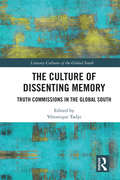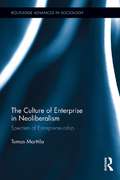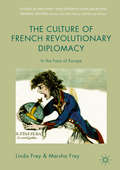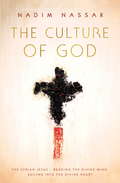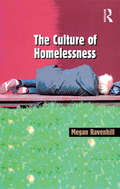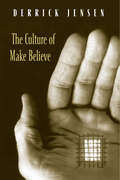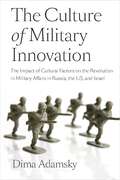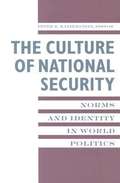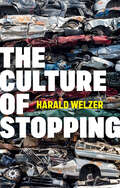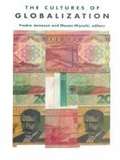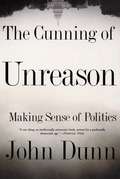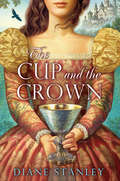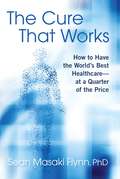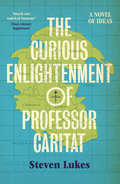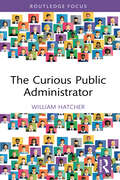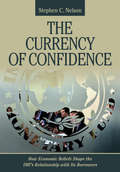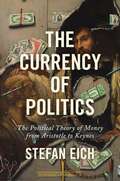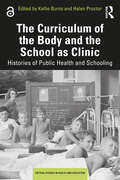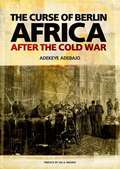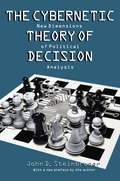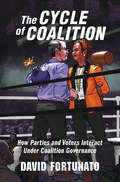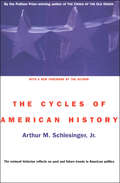- Table View
- List View
The Culture of Dissenting Memory: Truth Commissions in the Global South
by Véronique TadjoThis volume deals with the manifold ways in which histories are debated and indeed historicity and historiography themselves are interrogated via the narrative modes of the truth commissions. It traces the various medial responses (memoirs, fiction, poetry, film, art) which have emerged in the wake of the truth commissions. The 1990s and the 2000s saw a spate of so-called truth commissions across the Global South. From the inaugural truth commissions in post-juntas 1980s Latin America, to the Truth and Reconciliation Commission set up by the incoming post-apartheid government in South Africa and the twinned gacaca courts and National Unity and Reconciliation Commission in Rwanda and that in indigenous Australia, various truth commissions have sought to lay bare human rights abuses. The chapters in this volume explore how truth commissions crystallized a long tradition of dissenting and resisting cultures of memorialization in the public sphere across the Global South and provided a significant template for contemporary attempts to work through episodes of violence and oppression across the region. Drawing on studies from Latin America, Africa, Asia and Australia, this book illuminates the modes in which societies remember and negotiate with traumatic pasts. This book will be of great interest to scholars and researchers of human rights, popular culture and art, literature, media, politics and history.
The Culture of Enterprise in Neoliberalism: Specters of Entrepreneurship (Routledge Advances in Sociology #87)
by Tomas MarttilaThis book provides an empirical study of the increasing importance of the concept of the entrepreneur in the context of the neoliberal cultural paradigm. Using the theoretical framework of the post-structural discourse theory and methods of qualitative discourse analysis, the book describes the changes in political discourse that resulted in the increasing dominance of the figure of the entrepreneur after the late 1980s.
The Culture of French Revolutionary Diplomacy: In The Face Of Europe (Studies In Diplomacy And International Relations Ser.)
by Linda Frey Marsha FreyThis book examines the culture of the French diplomatic corps from 1789 to 1799. It analyzes how the French revolutionaries attempted, albeit unsuccessfully, to transform the diplomatic culture of the old regime, notably in etiquette, language and dress and how the ideology and dynamic of the Revolution affected certain aspects of international affairs.
The Culture of God: The Syrian Jesus - reading the divine mind, sailing into the divine heart
by Nadim Nassar'So much of the reporting of the Middle East at the moment reflects war and human misery; it's inspiring to find, in this thoughtful and engaging book, a message of hope from what Fr Nadim calls "that region of the world that God chose to live in when he took human form"' Edward Stourton'The ultimate question of this book is, why does it matter to me, a human being, to know the culture of God, and what impact should that have on my own life and existence? The culture of God is the antithesis of the culture of the Pharisees - yet again and again we fall into the trap of condemning or excluding others. Understanding the culture of God helps us to uncover God's image within us, a shining jewel buried deep under the dirt of our selfishness and greed, and helps us to shine as God intends us to, re-forming our relationships with God and with each other in our amazingly diverse world.'It is as we read the Bible, argues Father Nadim Nassar, that we are invited to discover what 'the culture of God' - the community of love that makes up the Trinity - looks like, and how it might transform our lives and our faith. But in order to do so we need to understand the culture of the Bible itself, as well as the particular culture that forms our own worldview. Ultimately it is Jesus who has direct access to the culture of God; and so we also need to understand Jesus within his first-century Levantine context.Father Nadim Nassar is the Church of England's only Syrian priest and an outspoken advocate for western Christians to recognise the Middle-Eastern roots of their faith. The fresh and provocative reflections in The Culture of God, his first book, are informed by his experience of growing up in Syria and living through the conflicts in the region, especially the civil wars in Lebanon and Syria. Taking us on a journey through the mystery of the incarnation, to Jesus' role as storyteller - Al-Hakawati - his relationship with a disparate cast of people as narrated by the gospels, and finally his death and resurrection, Father Nadim unfolds for us the culture of God and what it can mean for a world that so desperately needs both freedom and a way to embrace diversity. 'Fr Nadim's personal experience of the painful effects of war and conflict in the Middle East is an insightful lens into the brokenness of humanity that leads to the ongoing violation of the God-given sanctity and dignity of life. At the same time, the paradox of the Crucifixion and Christianity is presented as a key to understanding the restoration of that same humanity, and the possibility of reconciliation with God and one another if the life and teachings of Christ are truly lived.' Archbishop Angaelos, Coptic Orthodox Archbishop of London
The Culture of God: The Syrian Jesus - reading the divine mind, sailing into the divine heart
by Reverend Nadim Nassar'So much of the reporting of the Middle East at the moment reflects war and human misery; it's inspiring to find, in this thoughtful and engaging book, a message of hope from what Fr Nadim calls "that region of the world that God chose to live in when he took human form"' Edward Stourton'The ultimate question of this book is, why does it matter to me, a human being, to know the culture of God, and what impact should that have on my own life and existence? The culture of God is the antithesis of the culture of the Pharisees - yet again and again we fall into the trap of condemning or excluding others. Understanding the culture of God helps us to uncover God's image within us, a shining jewel buried deep under the dirt of our selfishness and greed, and helps us to shine as God intends us to, re-forming our relationships with God and with each other in our amazingly diverse world.'It is as we read the Bible, argues Father Nadim Nassar, that we are invited to discover what 'the culture of God' - the community of love that makes up the Trinity - looks like, and how it might transform our lives and our faith. But in order to do so we need to understand the culture of the Bible itself, as well as the particular culture that forms our own worldview. Ultimately it is Jesus who has direct access to the culture of God; and so we also need to understand Jesus within his first-century Levantine context.Father Nadim Nassar is the Church of England's only Syrian priest and an outspoken advocate for western Christians to recognise the Middle-Eastern roots of their faith. The fresh and provocative reflections in The Culture of God, his first book, are informed by his experience of growing up in Syria and living through the conflicts in the region, especially the civil wars in Lebanon and Syria. Taking us on a journey through the mystery of the incarnation, to Jesus' role as storyteller - Al-Hakawati - his relationship with a disparate cast of people as narrated by the gospels, and finally his death and resurrection, Father Nadim unfolds for us the culture of God and what it can mean for a world that so desperately needs both freedom and a way to embrace diversity. 'Fr Nadim's personal experience of the painful effects of war and conflict in the Middle East is an insightful lens into the brokenness of humanity that leads to the ongoing violation of the God-given sanctity and dignity of life. At the same time, the paradox of the Crucifixion and Christianity is presented as a key to understanding the restoration of that same humanity, and the possibility of reconciliation with God and one another if the life and teachings of Christ are truly lived.' Archbishop Angaelos, Coptic Orthodox Archbishop of London
The Culture of Homelessness
by Megan RavenhillDespite an extensive literature on homelessness there is surprisingly little work that investigates the roots of homelessness by tracking homeless people over time. In this fascinating and much-needed ethnographic study, Megan Ravenhill presents the results of ten years' research on the streets and in the hostels and day-centres of the UK, incorporating intensive interviews with 150 homeless and formerly homeless people as well as policy makers and professionals working with homeless people. Ravenhill discusses the biographical, structural and behavioural factors that lead to homelessness. Amongst the important and unique features of the study are: the use of life-route maps showing the circumstances and decisions that lead to homelessness, a systematic study of the timescales involved, and a survey of people's exit routes from homelessness. Ravenhill also identifies factors that predict those most vulnerable to homelessness and factors that prevent or considerably delay the onset of homelessness.
The Culture of Make Believe
by Derrick JensenDerrick Jensen takes no prisoners in The Culture of Make Believe, his brilliant and eagerly awaited follow-up to his powerful and lyrical A Language Older Than Words. What begins as an exploration of the lines of thought and experience that run between the massive lynchings in early twentieth-century America to today's death squads in South America soon explodes into an examination of the very heart of our civilization. The Culture of Make Believe is a book that is as impeccably researched as it is moving, with conclusions as far-reaching as they are shocking.
The Culture of Military Innovation: The Impact of Cultural Factors on the Revolution in Military Affairs in Russia, the US, and Israel.
by Dmitry (Dima) AdamskyThis book studies the impact of cultural factors on the course of military innovations. One would expect that countries accustomed to similar technologies would undergo analogous changes in their perception of and approach to warfare. However, the intellectual history of the Revolution in Military Affairs (RMA) in Russia, the US, and Israel indicates the opposite. The US developed technology and weaponry for about a decade without reconceptualizing the existing paradigm about the nature of warfare. Soviet 'new theory of victory' represented a conceptualization which chronologically preceded technological procurement. Israel was the first to utilize the weaponry on the battlefield, but was the last to develop a conceptual framework that acknowledged its revolutionary implications. Utilizing primary sources that had previously been completely inaccessible, and borrowing methods of analysis from political science, history, anthropology, and cognitive psychology, this book suggests a cultural explanation for this puzzling transformation in warfare. The Culture of Military Innovation offers a systematic, thorough, and unique analytical approach that may well be applicable in other perplexing strategic situations. Though framed in the context of specific historical experience, the insights of this book reveal important implications related to conventional, subconventional, and nonconventional security issues. It is therefore an ideal reference work for practitioners, scholars, teachers, and students of security studies.
The Culture of National Security: Norms and Identity in World Politics
by Peter KatzensteinThirteen articles are the result of a project designed to expose scholars of national security to different intellectual climates at different universities. Working from accepted theories including realist, post-modern, cultural, and rational choice approaches which have proven inadequate for analysis of a world in rapid change, contributors offer alternative perspectives on national security. The articles are divided into chapters on norms and national security; identity and national security; and implications and conclusions.
The Culture of Stopping
by Harald WelzerOur culture has no concept of stopping. We continue to build motorways and airports for a future in which cars and planes may no longer exist. We’re converting our planet from a natural one to an artificial one in which the quantity of man-made objects – houses, asphalt, cars, plastic, computers and so on – now exceeds the totality of living matter. And while biomass continues to decline due to deforestation and species extinction, the mass of man-made objects is growing faster than ever. We’re on a treadmill to disaster. To get off this treadmill, argues Harald Welzer, we need to learn how to stop: as individuals and as societies, we need to stop doing what we’re doing and say ‘enough’. We find it hard to do this because our culture has trained us to regard endless escalation as desirable, and we’re reluctant to surrender the material benefits of growth. But as long as the expansive cultural model continues to prevail, there will be no change of course in favour of sustainable and climate-friendly practices and lifestyles. We need a cultural model in which the beauty of stopping is given the recognition needed for the project of civilization to continue. Optimizing processes that are heading in the wrong direction only makes matters worse. Stopping is imperative: it is a human cultural technique that we must re-learn. Only then can we achieve a new beginning.
The Cultures of Globalization
by Masao Miyoshi Fredric JamesonA pervasive force that evades easy analysis, globalization has come to represent the export and import of culture, the speed and intensity of which has increased to unprecedented levels in recent years. The Cultures of Globalization presents an international panel of intellectuals who consider the process of globalization as it concerns the transformation of the economic into the cultural and vice versa; the rise of consumer culture around the world; the production and cancellation of forms of subjectivity; and the challenges it presents to national identity, local culture, and traditional forms of everyday life.Discussing overlapping themes of transnational consequence, the contributors to this volume describe how the global character of technology, communication networks, consumer culture, intellectual discourse, the arts, and mass entertainment have all been affected by recent worldwide trends. Appropriate to such diversity of material, the authors approach their topics from a variety of theoretical perspectives, including those of linguistics, sociology, economics, anthropology, and the law. Essays examine such topics as free trade, capitalism, the North and South, Eurocentrism, language migration, art and cinema, social fragmentation, sovereignty and nationhood, higher education, environmental justice, wealth and poverty, transnational corporations, and global culture. Bridging the spheres of economic, political, and cultural inquiry, The Cultures of Globalization offers crucial insights into many of the most significant changes occurring in today's world.Contributors. Noam Chomsky, Ioan Davies, Manthia Diawara, Enrique Dussel, David Harvey, Sherif Hetata, Fredric Jameson, Geeta Kapur, Liu Kang, Joan Martinez-Alier, Masao Miyoshi, Walter D. Mignolo, Alberto Moreiras, Paik Nak-chung, Leslie Sklair, Subramani, Barbara Trent
The Cunning of Unreason: Making Sense of Politics
by John DunnJohn Dunn is the founding father of the Cambridge school, which introduced an approach to political theory that emphasizes the importance of historical context in the formation and interpretation of arguments and ideas. The Cunning of Unreason makes a powerful case for the application of the Cambridge school approach to the current political climate. Emphasizing the tempering influence of actual social and political circumstances, as well as the enduring relevance of great political thinkers from Aristotle to Marx, Dunn addresses contemporary debates about democracy, corruption, globalization, and the recent trend toward conservatism.
The Cup and the Crown
by Diane StanleyNight after night, Molly has visions of a beautiful goblet: one of her grandfather’s loving cups, which he filled with magic that bound people together. So it hardly surprises Molly when handsome King Alaric asks her to find a loving cup to help him win the heart of the beautiful Princess of Cortova. As Molly and her friends Winifred and Tobias journey in search of a loving cup, a mysterious raven joins their quest and appears to guide them all the way to the hidden city of Harrowsgode. There, Molly discovers secrets about her own family as well as the magic of the loving cup. But Harrowsgode is hidden for a reason, and leaving is more difficult than Molly imagined. Will she be able to escape, let alone bring a loving cup to King Alaric?
The Cure That Works: How to Have the World's Best Health Care -- at a Quarter of the Price
by Sean M. FlynnWhat’s the Most Important Fact About the Heathcare Crisis? That We Already Know the Cure! Whole Foods Markets, the State of Indiana, and innovators around the world have used forgotten American ideas to slash healthcare costs by 75 percent while simultaneously delivering true universal access, coverage for preexisting conditions, and an ironclad safety net. Economics for Dummies author Sean Flynn explains that simple things—like price tags, competition, and plentiful health savings contributions—crush costs while granting everyone equal access to the world’s best healthcare services.
The Cure for Obamacare
by Sally C. PipesThis Broadside will look at the changes that can be made to halt the full implementation of the law over the next few years, including repealing parts of the act that are unpopular with members of both parties. These parts are the medical device tax, IPAB, the new 3.8 percent tax on unearned income, to name a few.Also covered will be potential reforms to Medicare and Medicaid, two major entitlement programs that, if not reformed to ensure sustainability for those who really need these programs, will be bankrupt by 2024. There are a number of important lawsuits that will come before the courts this year on issues such as the exchanges, employer and individual mandates, and the contraception mandate. These will be highlighted and their potential impact on the law will be discussed.Finally, there is the issue of defunding the Medicaid expansion and the federal tax subsidies which, unless changed, will add tremendously to the cost of health care in this country. With the current fiscal crisis, these programs must be scaled back.Like welfare reform, the battle to bring about meaningful health care reform is a long-term fight. We must not give up. The election of 2016 will be very important for the future direction of health care. A reform plan will be offered. If Obamacare is not repealed and replaced, the U.S. will be on the road to a single-payer, "Medicare for All" system such as exists in Canada. We, too, will face long waiting lists, rationed care, and a lack of access to the latest technology and treatments. Examples will be given. America will be on the "Road to Serfdom" and there will be no off-ramp.
The Curious Enlightenment of Professor Caritat
by Steven LukesThe Curious Enlightenment of Professor Caritat is a brilliant fictional journey through Western political philosophy by one of our most original thinkers. Professor Caritat, a middle-aged Candide, walks naively through the neighbouring countries of Utilitaria, Communitaria and Libertaria, in his quest to find the best of all possible worlds. Cut loose from the confines of his ivory tower, this wandering professor is made to confront the perplexed state of modern thinking in this dazzling comedy of ideas.From the Trade Paperback edition.
The Curious Public Administrator
by William HatcherLouis Brownlow, one of public administration’s historical thinkers, once argued, “[T]he principal requirement of a good administrator is an insatiable curiosity.” This book is rooted in the notion that public administrators must practice insatiable curiosity to be effective, fair, and democratic. By seeking to uncover how the world works, and therefore practicing curiosity, public administrators may be more likely to move toward evidence-based decisions, improving the efficacy and efficiency of public service. Curiosity encourages public administrators to seek answers in a caring manner and, in doing so, to empathize with the communities that they serve. First, the book incorporates the concept of curiosity into the field of public administration. Scholarship in philosophy, business administration, social science, and other scholarly fields addresses curiosity, but public administration has yet to examine this concept in detail. This book fills that hole in the literature. Second, the book presents novel primary data on curiosity in public agencies by examining curious organizations and surveying local government officers. Third, the book presents novel primary data on how public affairs faculty view curiosity and incorporate the concept in their research and the classroom. Lastly, author William Hatcher integrates this information in the book’s final chapter to present a model of administrative curiosity, focusing on creating a guide for future research and teaching. Thus, this book serves as a roadmap for developing a new doctrine of curiosity in public administration theory and practice, and it will be of enormous interest to students enrolled in public affairs courses as well as practicing public administrators and nonprofit managers.
The Currency of Confidence: How Economic Beliefs Shape the IMF’s Relationship with Its Borrowers (Cornell Studies In Money Ser.)
by Stephen C. NelsonThe IMF is a purposive actor in world politics, primarily driven by a set of homogenous economic ideas, Stephen C. Nelson suggests, and its professional staff emerged from an insular set of American-trained economists. The IMF treats countries differently depending on whether that staff trusts the country's top officials; that trust in turn depends on the educational credentials of the policy team that Fund officials face across the negotiating table. Intellectual differences thus lead to lasting economic effects for the citizens of countries seeking IMF support. Based on deep archival research in IMF archives and personnel files, Nelson argues that the IMF has been the Johnny Appleseed of neoliberalism: neoliberal policymakers sprout and take root in countries that have spent recent decades living under the Fund’s conditional lending arrangements. Nelson supports his argument through quantitative measures and illustrates the dynamics of relations between the Fund and client countries in a detailed examination of newly available archives of four periods in Argentina’s long and often bitter relations with the IMF. The Currency of Confidence ends with Nelson’s examination of how the IMF emerged from the global financial crisis as an unexpected victor. 02 The IMF is a purposive actor in world politics, primarily driven by a set of homogenous economic ideas, Stephen C. Nelson suggests in The Currency of Confidence, and its professional staff emerged from an insular set of American-trained economists
The Currency of Politics: The Political Theory of Money from Aristotle to Keynes
by Stefan EichMoney in the history of political thought, from ancient Greece to the Great Inflation of the 1970sIn the wake of the 2008 financial crisis, critical attention has shifted from the economy to the most fundamental feature of all market economies—money. Yet despite the centrality of political struggles over money, it remains difficult to articulate its democratic possibilities and limits. The Currency of Politics takes readers from ancient Greece to today to provide an intellectual history of money, drawing on the insights of key political philosophers to show how money is not just a medium of exchange but also a central institution of political rule.Money appears to be beyond the reach of democratic politics, but this appearance—like so much about money—is deceptive. Even when the politics of money is impossible to ignore, its proper democratic role can be difficult to discern. Stefan Eich examines six crucial episodes of monetary crisis, recovering the neglected political theories of money in the thought of such figures as Aristotle, John Locke, Johann Gottlieb Fichte, Karl Marx, and John Maynard Keynes. He shows how these layers of crisis have come to define the way we look at money, and argues that informed public debate about money requires a better appreciation of the diverse political struggles over its meaning.Recovering foundational ideas at the intersection of monetary rule and democratic politics, The Currency of Politics explains why only through greater awareness of the historical limits of monetary politics can we begin to articulate more democratic conceptions of money.
The Curriculum of the Body and the School as Clinic: Histories of Public Health and Schooling (Critical Studies in Health and Education)
by Helen Proctor Kellie BurnsThis collection brings together cutting-edge research on the history of embodiment, health and schooling in an international context. The book distinguishes a set of educational technologies, schooling practices and school-based public health programmes that organise and influence the bodies of children and young people, defining the curriculum of the body. Taking a historical approach, with a focus on the period in which mass schooling became an international phenomenon, the book is organised according to four major themes. The first positions the school as a modern clinical space, followed by the second that explores programmes and curricula which influence the discipline of and care for the body. The third section examines the role of the built environment on the organisation and experience of children’s bodies, and the final section outlines the pedagogies, rules and routines that determine how the body is treated and experienced in school. International and multidisciplinary in scope, this unique collection is of interest to postgraduate students and researchers in education and public health, as well as history, policy studies and sociology.
The Curriculum of the Body and the School as Clinic: Histories of Public Health and Schooling (Critical Studies in Health and Education)
by Helen ProctorThis collection brings together cutting-edge research on the history of embodiment, health and schooling in an international context. The book distinguishes a set of educational technologies, schooling practices and school-based public health programmes that organise and influence the bodies of children and young people, defining the curriculum of the body.Taking a historical approach, with a focus on the period in which mass schooling became an international phenomenon, the book is organised according to four major themes. The first positions the school as a modern clinical space, followed by the second that explores programmes and curricula which influence the discipline of and care for the body. The third section examines the role of the built environment on the organisation and experience of children’s bodies, and the final section outlines the pedagogies, rules and routines that determine how the body is treated and experienced in school.International and multidisciplinary in scope, this unique collection is of interest to postgraduate students and researchers in education and public health, as well as history, policy studies and sociology.
The Curse of Berlin: Africa After the Cold War
by Adekeye AdebajoThe first Session: The African Union and sub-regional bodies; another on the political, peacekeeping, and socioeconomic roles of the United Nations (UN) in Africa; and a third on Africa's two UN Secretaries-General between 1992 and 2006: The second section of the book focuses on Africa's quest for leadership, and five chapters examine the hegemonic roles of South Africa, Nigeria, the United States, China and France on the continent. The five chapters in the final section of the study analysis Africa's quest for unity, and examine the roles and significance for Africa.
The Cybernetic Theory of Decision: New Dimensions of Political Analysis
by John D. SteinbrunerIn this classic work, John Steinbruner argues that the time is ripe for exploration of a new theoretical perspective on the decision-making process in government. He suggests that the cybernetic theory of decision as developed in such diverse fields as information theory, mathematical logic, and behavioral psychology generates a systematic but non-rational analysis that seems to explain quite naturally decisions that are puzzling when viewed from the rational perspective. When combined with the basic understanding of human mental operations developed in cognitive psychology, the cybernetic theory of decision presents a striking picture of how decision makers deal with the intense uncertainty and fundamental value conflicts that arise in bureaucratic politics. To illustrate the advantages of using cybernetic theory, Steinbruner analyzes the issue of sharing nuclear weapons among the NATO allies.
The Cycle of Coalition: How Parties and Voters Interact under Coalition Governance
by David FortunatoHow does coalition governance shape voters' perceptions of government parties and how does this, in turn, influence party behaviors? Analyzing cross-national panel surveys, election results, experiments, legislative amendments, media reports, and parliamentary speeches, Fortunato finds that coalition compromise can damage parties' reputations for competence as well as their policy brands in the eyes of voters. This incentivizes cabinet partners to take stands against one another throughout the legislative process in order to protect themselves from potential electoral losses. The Cycle of Coalition has broad implications for our understanding of electoral outcomes, partisan choices in campaigns, government formation, and the policy-making process, voters' behaviors at the ballot box, and the overall effectiveness of governance.
The Cycles of American History
by Arthur M. Schlesinger Jr.A Pulitzer Prize–winning historian discusses &“the Cold War, political parties, the presidency, and many broader philosophical issues [with] incisive wit&” (Library Journal). A celebrated historian, speechwriter, and adviser to President Kennedy, Arthur M. Schlesinger Jr. draws on decades of astute observation to construct a dialectic of American politics, or as Time magazine called it, a &“recurring struggle between pragmatism and idealism in the American soul.&” The Cycles of American History traces two conflicting visions of America—Experiment vs. Destiny—through two centuries of political evolution, conflict, and progress. In this updated edition, Schlesinger reflects on the dawn of a new millennium and how new social and technological revolutions could lead to a revolution in American political cycles. &“Whatever the nation&’s political future, it can benefit from the intelligence and regard for our country&’s best traditions evident in these informed and humane essays.&” —TheNew York Times &“Displays the author at his best: trenchant, erudite, crisp.&” —Foreign Affairs &“An excellent and provocative primer on the challenges surrounding the contemporary American political setting . . . First-rate history mixed with a strong sense of public service.&” —The Christian Science Monitor
